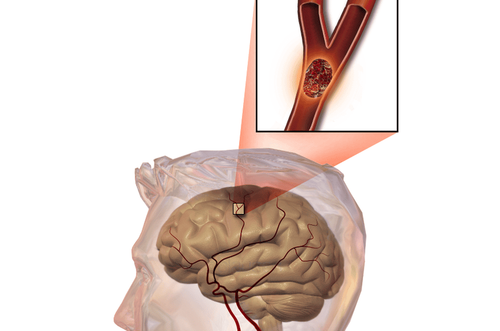Tongue numbness or loss of taste is often accompanied by symptoms like swelling, burning, or reduced appetite. The most common causes include allergic reactions to certain foods, hypocalcemia, bacterial infections such as Lyme disease, or nervous system-related conditions. Determining the underlying cause of tongue numbness and taste loss is crucial for effective treatment.
1. Common Symptoms Associated with Tongue Burning and Taste Loss
Tongue numbness and taste loss can sometimes occur as part of numbness in other parts of the body. Many people experience temporary numbness in limbs due to prolonged pressure, like sleeping on an arm or excessive typing. However, tongue numbness and taste loss are less common and can be alarming. Additionally, tongue numbness may combine with other symptoms, making patients feel unusual and uncomfortable.
Associated symptoms may include:
- Burning sensation in the tongue
- Tingling or prickling sensation
- Needle-like feeling
- Swelling of the tongue
- Itching
- Weakness in the tongue
- Facial pain
These symptoms may occur in isolation on the tongue or near it, such as around the mouth. The duration of symptoms such as tongue numbness and loss of taste is often temporary. However, it’s important to consult a doctor, identify the underlying cause, and seek appropriate care if these symptoms arise.
2. Causes of Tongue Numbness and Taste Loss
Numbness usually results from injury, compression, or irritation of nerves or branches of nerves in the affected body part. The tongue, which contains numerous nerves and small blood vessels connected to the face and brain, is highly sensitive. These nerves and vessels branch out in various directions to provide blood flow and sensation throughout the tongue.
Additionally, the tongue serves as the body’s first line of defense against harmful substances, as it comes into direct contact with food, drinks, and other materials. Therefore, it is especially sensitive to various factors affecting its nerves and blood vessels.

2.1. Inflammatory Causes
- Allergies: When the tongue encounters foods or chemicals perceived as harmful by the immune system, it may swell, tingle, or become numb as part of an allergic reaction.
- Autoimmune Disorders: Conditions like multiple sclerosis or lupus can cause the immune system to attack nerves in the tongue, leading to numbness.
- Infections: Bacterial infections like Lyme disease or viral infections like shingles can inflame and damage nerves, causing numbness or even facial paralysis, which may extend to the tongue and mouth area.
2.2. Environmental Causes
- Vitamin Imbalance: Deficiencies in vitamins essential for nerve health, such as vitamins D and B12, can cause nerve damage over time, leading to numbness. Conversely, excessive intake of vitamin B6 can also cause numbness.
- Mineral Imbalance: Deficiency in minerals like calcium, vital for overall bodily function, can result in hypocalcemia, leading to a tingling sensation around the mouth, similar to tongue numbness.
2.3. Systemic Disorders
- Central Nervous System: Tongue or mouth numbness can be an early warning sign of central nervous system conditions like migraines or impending strokes.
- Metabolic Issues: Disorders in routine bodily functions, such as glucose regulation (hypoglycemia), can affect nerve activity, causing tingling or numbness in the tongue, mouth, and other body parts.
- Blood Vessel Issues: Vasoconstriction in the tongue can lead to numbness due to reduced blood flow.
2.4. Low Blood Calcium Levels
- Hypocalcemia, or low blood calcium levels, is a condition where there is an insufficient concentration of functional calcium in the blood. Calcium is a vital mineral that helps the heart and other muscles function normally and is essential for maintaining strong teeth and bones.
- Common symptoms of suspected hypocalcemia are fatigue, difficulty breathing, irritability, full-body numbness, and tingling in the legs. A definitive diagnosis of hypocalcemia is made through blood tests measuring calcium levels.
- While hypocalcemia is relatively rare, especially with a balanced diet and no underlying health conditions, it is a medical emergency. Immediate intervention is necessary to prevent severe complications such as heart arrhythmias, which can lead to sudden death.
2.5. Allergic Reactions
- When exposed to harmful substances, the body reacts with inflammation and swelling. For many individuals, this response occurs even with harmless substances such as food or pollen, resulting in allergies or Type 1 hypersensitivity reactions.
- Common Symptoms of Allergic Reactions are facial swelling, lip swelling, numbness of the lips and tongue, rashes, itchy throat and severe cases: wheezing, acute difficulty breathing, low blood pressure, and shock.
- Allergic reactions are life-threatening and require prompt administration of anti-allergy medications to prevent worsening symptoms that could endanger the patient’s life.

2.6. Ischemic Stroke or Transient Ischemic Attack (TIA)
A transient ischemic attack, or TIA, is often referred to as a "mini-stroke" or "warning stroke." Any stroke indicates that blood flow in a part of the brain has been blocked by a clot.
Risk factors for stroke include smoking, obesity, and cardiovascular disease. However, anyone can experience a TIA.
"Transient" symptoms mean they appear and disappear within minutes as the clot dissolves or moves. Stroke symptoms include: weakness, numbness or paralysis on one side of the face and/or body, numbness or loss of taste in the tongue, tongue weakness leading to slurred speech or choking, abnormal vision, and sudden, severe headache
A TIA does not cause permanent damage as it resolves quickly. However, it is a warning sign of a potentially more severe stroke. Prompt treatment is critical to prevent long-term disability. Upon noticing stroke symptoms, patients should be rushed to the emergency room for timely diagnosis and intervention.
2.7. Bell's Palsy
Bell's palsy, unlike stroke, has a completely different mechanism and may present as acute or chronic facial paralysis. This condition usually starts suddenly and worsens within 48 hours. Symptom resolution typically occurs within two weeks to six months, with permanent paralysis being rare.
Symptoms of Bell's palsy often include localized facial muscle paralysis and numbness or loss of taste in the tongue. The cause of Bell's palsy is inflammation or damage to the facial nerve, which controls facial muscles. Treatment focuses on reducing inflammation or addressing the underlying cause of facial nerve paralysis.
In conclusion, tongue numbness, burning, and loss of taste can have various causes. Neurological damage is the most common and dangerous, alongside allergic reactions. Regardless of the cause, these symptoms often signal a serious condition. It is essential to seek medical evaluation, identify the cause, and receive timely treatment to prevent severe complications.
To schedule an appointment at the hospital, please contact the HOTLINE or book directly HERE. Download the MyVinmec app to manage, track, and schedule appointments conveniently anytime, anywhere.













